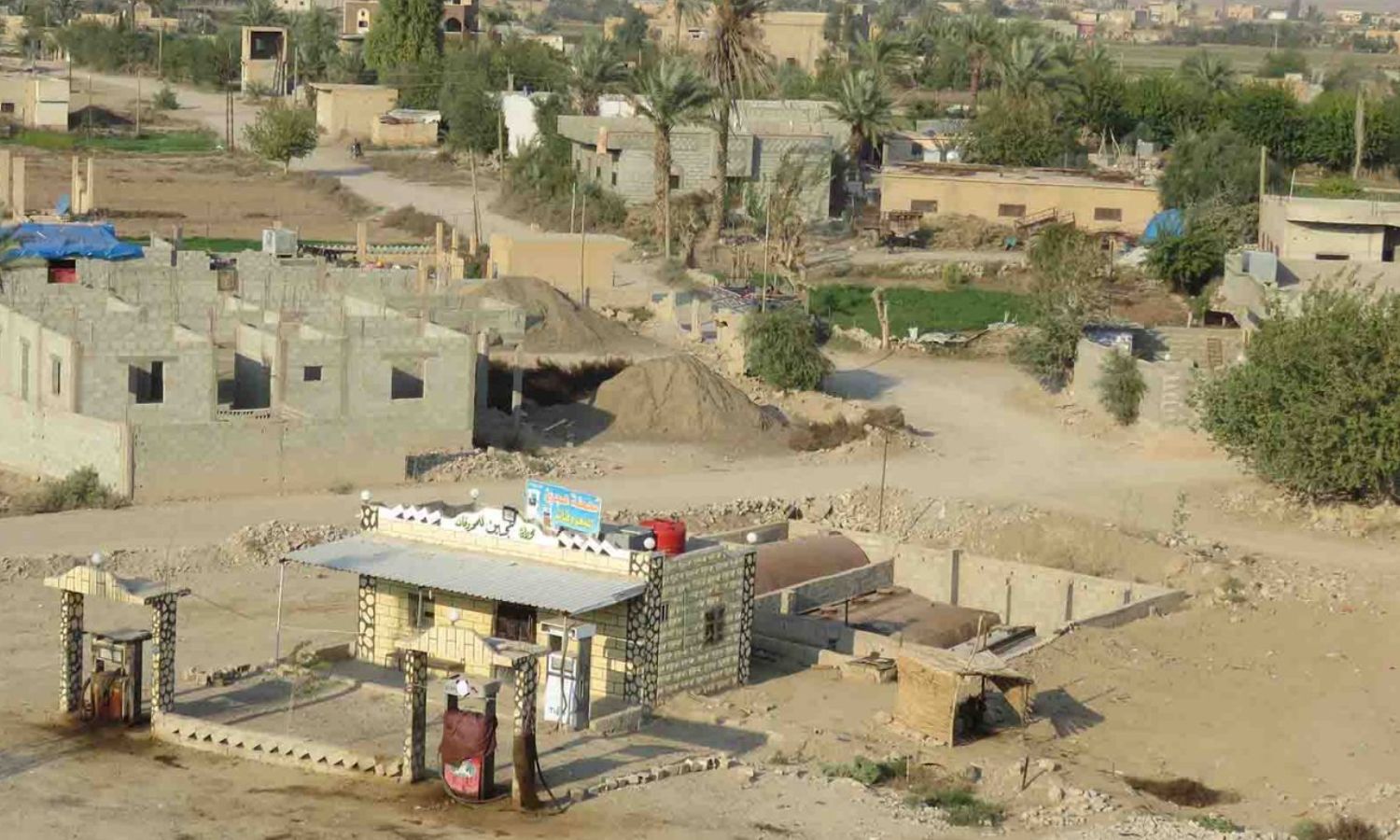



Deir Ezzor – Obadah al-Sheikh
With the onset of winter, many families in the eastern Deir Ezzor governorate remain without their usual allocation of heating fuel provided by the Autonomous Administration of North and East Syria (AANES), which puts them in a difficult situation.
These families must bear additional costs to provide heat for their homes as a result of being denied a fuel card, which provides up to 300 liters of diesel for each family.
On November 21, the AANES’ Fuel Committee in Deir Ezzor issued a decision requesting the heads of local councils and district mayors to prepare lists containing the names of people who did not receive fuel allocations, with the submission of a written pledge confirming that the names will not be provided by the head of each local council in the Deir Ezzor countryside.
Local census officials justify the failure of some families to receive their fuel allocations by saying that an error occurred in the name coordination program.
Khatoun, a resident of the town of al-Busayrah in the eastern countryside of Deir Ezzor, described during her interview with Enab Baladi her concerns about the harshness of the winter and its impact on her family, which is looking for alternatives to provide warmth at the beginning of this season.
She said that one of the alternatives available to her is to buy quantities of diesel from the black market, or to rely on other sources of heating, such as wood-burning stoves, the price of one ton of fuel has reached more than one million Syrian pounds.
Khatoun spoke about the increasing financial pressures on the family, as the price of a kilo of firewood in Deir Ezzor markets reached 1,200 pounds, while the price of a liter of diesel reached 4,000 pounds, noting that her family’s daily need sometimes exceeds one liter due to increased consumption during the winter.
Khalaf al-Alawi, who lives in the city of Al-Shuhail, east of Deir Ezzor, and is a displaced person from the town of Buqurs, faced the same fears, noting that the Census Committee of the Autonomous Administration recorded his personal information and promised him allocations, but he has not received them to date.
Al-Alawi added that his family and three others were given one fuel card, containing 300 liters for them combined, during the current year, but he did not receive his allocations even during the past year.
Al-Alawi likened the fuel distribution mechanism adopted by the Autonomous Administration to that adopted by the regime in areas under its control via the subsidy card, known as the “smart card.”
Enab Baladi contacted a member of the AANES’ Civil Council in the eastern countryside of Deir Ezzor. He said that the quantities of available heating diesel are greatly reduced as winter approaches.
He added that the Autonomous Administration began the process of distributing diesel about two months ago, five months after the number of beneficiary families ended, but many families did not receive their allocations.
The member explained that allocations for about 14,600 cards were distributed last year in the city of Hajin and neighboring areas east of Deir Ezzor governorate, but this year only 10,400 cards were counted.
He noted that these numbers show the reduction in the number of cards distributed this year compared to last year.
The AANES approves the delivery of 300 liters of diesel under the supervision of the Fuel Committee to each family, as the quantity is delivered to the card holder himself.
In addition to the poor quality of diesel fuel, residents suffer from the problem of the Fuel Committee tampering with quantities and distribution processes in the Deir Ezzor countryside, as bad diesel fuel causes problems for consumers, while residents of the region believe that the Fuel Committee includes people who tamper with distribution processes.
The governorates of Deir Ezzor and al-Hasakah include most of the oil fields in Syria, the largest portion of which are located in Deir Ezzor.
The US-backed Syrian Democratic Forces (SDF), the military wing of the Autonomous Administration, control most of these fields, while the Syrian regime controls the fields located west of the Euphrates River.
The AANES areas include the Rumaylan oil field in al-Hasakah governorate, in addition to the two largest oil fields in Syria, which are the al-Omar field and the al-Tanak field, followed by the al-Ezba field and a number of other fields in the countryside of Deir Ezzor.
Despite the SDF’s control over these fields, civilians in areas under its control suffer from a scarcity of heating fuel, a deteriorating economic situation, and a lack of services.
if you think the article contain wrong information or you have additional details Send Correction